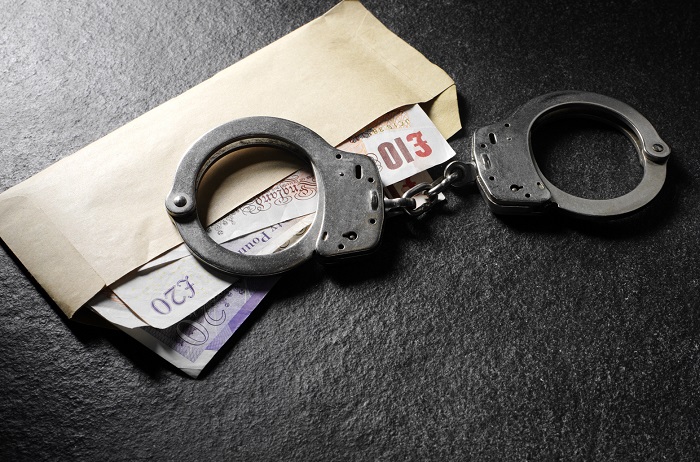Throughout the world we continue to see the tightening of bribery and corruption laws and the increased vigour with which enforcement agencies are pursuing these cases, says Emma Brooks, partner at London-based criminal litigation lawyers Byrne and Partners.
Like many other continents, Asia is desperately trying to catch up with the US and the UK when it comes to tackling bribery, particularly in relation to corporate entities.
Exporting corruption report
However, the latest ‘Exporting Corruption’ report by Transparency International UK, published on 12 September, concluded that a number of countries within the continent were completely failing to punish corporations which pay bribes overseas.
The report states that China, Singapore and India have ‘little to no enforcement against bribery’ and urges these countries to join the Organisation for Economic Co-operation and Development (OECD) Anti-Bribery Convention as part of their efforts to strike new trade deals with the UK, particularly post Brexit.
Singapore ‘dealt severe blow’
Singapore’s previously squeaky-clean image has been dealt a severe blow following recent high-profile bribery scandals.
Most notably, in December 2017, the Singapore oil and gas service company Keppel Offshore and Marine Limited avoided a prosecution when they received a conditional warning served upon it by the Singapore Attorney General.
This related to allegations that the company had paid $55m in bribes in order to win 13 contracts with Petrobas and Sete Brasil – two Brazilian oil companies alleged to be involved in the notorious ‘Operation Car Wash’ bribery scandal.
This was a significant global resolution with a hefty payment of $422m negotiated with the Department of Justice in the US. Of this settlement, the Singaporean authorities received a $105m share with the remainder split between US and Brazil.
This case highlighted the inadequacy of current Singapore domestic laws against corruption, as the financial penalty imposed jointly by the different countries’ enforcement agencies was far greater than any fine which could have been imposed under Singapore’s own legislation, which provides for a maximum penalty of $100m per offence of this kind.
It therefore comes as no surprise that shortly after the resolution of this case, in March of this year Singapore took steps to increase the strength of its own powers relating to corporate offending by passing the Criminal Justice Reform Act, which amongst other things introduced Deferred Prosecution Agreements (DPAs).
DPAs are an agreement made between a corporate and an enforcement agency to resolve a matter which could otherwise be prosecuted. The agreement dictates that the prosecution will be suspended for a defined period provided that the company complies with various conditions of the order including payment of a financial penalty.
DPAs have been used for decades in the US and since their introduction in 2014 have been used in the UK in a number of high profile corruption cases including Rolls Royce.
The Singapore DPA has many similarities to the UK’s DPA process, including DPAs only being available to corporates, not individuals, accused of bribery. This differs from the US system where individuals can be subject to a DPA.
Similarly, the DPA will require court approval that the agreement is ‘in the interests of justice’ and the terms are ‘fair reasonable and proportionate’. The DPAs will not only be available in relation to offences of corruption but also money laundering and receipt of stolen property. The introduction of DPAs has been hailed as a significant step in the right direction for Singapore.
Bribery abounds in India
The criticism of India in the Transparency International report will only confirm views held by many for some time that bribery is a necessary part of doing business in India.
However, in July of this year, the Indian parliament passed amendments to the Prevention of Corruption Act 1988 (PCA). The amendments have strengthened the somewhat outdated Act. Importantly, the new Section 9 creates for the first time a distinct offence for commercial organisations who give or promise to give any undue advantage to a public servant with the intention of obtaining or retaining business.
However, it also introduces a defence if the corporate can demonstrate that the offence was committed without their knowledge and they had exercised all due diligence to prevent it – akin to an ‘adequate procedures’ defence under the UK Bribery Act.
The introduction of these tougher measures has come about, in part, from a growing public dissatisfaction with the country’s record of tackling bribery and an increased recognition of its cost to the Indian economy.
Recent months have also shown that the Indian authorities are not afraid of considering taking their own action following on from investigations undertaken by the US Department of Justice (DOJ).
We have seen recent examples where despite the DOJ agreeing a form of settlement with a US engineering company and a ‘disgorgement’ payment being made in respect of the alleged wrongdoing, the Indian subsidiary then faced a subsequent investigation by the Indian authorities.
This serves as a stark warning that despite increased cross-border co-operation, a company cannot assume that these multijurisdictional investigations will always result in a single co-ordinated resolution that allows a company to draw a line under the matter.
Pressure increases across the world
In summary, the increasing international focus and appetite to reduce corruption worldwide is only going to increase the pressure on all countries to ensure they are not left behind.
Those countries who wish to be attractive as both a base for businesses and a place that others want to trade with, will have to demonstrate that as well as having the necessary laws in place to tackle corruption, they have the enthusiasm and resources available to the enforcement agencies to rigorously use those powers.
Emma Brooks is a Partner at Byrne and Partners LLP specialising in corporate fraud, white collar crime and regulatory work. She regularly represents those subject to bribery and corruption investigations by the Serious Fraud Office.








